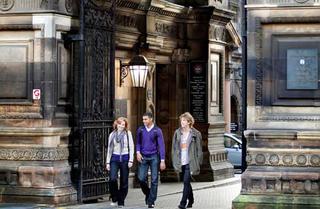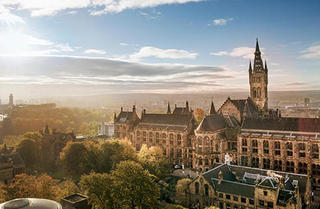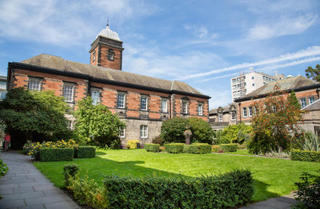Study General History abroad
General History majors learn about the key historical events that shape our world. They explore the diversity of human experience in the past and build competencies in critical-thinking, research and communication.
Average annual salary of historians
Average annual salary of museum workers and conservators

5% expected growth in employment opportunities for historians this decade
Average annual salary of top historians
About General History
Many history programmes have chronological and geographic course requirements, requiring students to learn about the premodern era and travel to different parts of the world.
Is General History right for me?
General History study options and costs

If you plan on becoming a historian, you must first complete high school and then pursue a history degree at college. After earning a bachelor's degree, aspiring historians must enrol in a graduate school in their chosen field of study. Some historical professions require candidates to hold a PhD in their field of study. In such a competitive sector, a history applicant must have research experience in the field of his specialisation.
According to the Bureau of Labor Statistics (BLS), historians with a bachelor's degree in general history mostly pursue instructional and research careers. Becoming a museum technician is another popular career. If they do not go into public school teaching, those with bachelor's degrees in history seek jobs in media, law, or business. A master's or doctorate in history is required for most historians to work in the discipline.
Future outlook
Career pathways for General History graduates

Historian
A historian's task is to locate and use historical documents, records, newspapers, pictures, videos, diaries, books, letters, and artefacts to explain and identify changes that occurred through time in the era of study. The historian must first collect data from many sources, formulate hypotheses based on the facts, then proceed to draw conclusions about all of these facets of life at that time and location.
History Researcher
To better comprehend the past, a research historian does a significant study on historical individuals, locations, items, and events. Organising data, communicating with other researchers, creating papers with your results, and assuring information accuracy are all part of this job. Their daily responsibilities include reviewing documents and artefacts, locating significant facts, evaluating the data, and presenting the data through exhibitions, films, and other historical programmes.
History Professor
A history professor instructs college students on the past in general and on specific issues and can assist students in interpreting events and teachings from different time periods, as well as how they influenced later events.
Available scholarships
-
At University of Edinburgh

Edinburgh , United Kingdom

Trình độ chuyên môn
Undergraduate

Hình thức tài trợ
Fee waiver/discount
-
At University of Glasgow

Glasgow , United Kingdom

Trình độ chuyên môn
Masters

Hình thức tài trợ
Fee waiver/discount

Hạn nộp hồ sơ
30 Sep 2024
-
At University of Dundee

Dundee , United Kingdom

Trình độ chuyên môn
Undergraduate

Hình thức tài trợ
Fee waiver/discount

Hạn nộp hồ sơ
03 May 2024









Hãy bắt đầu
Đăng ký hoặc đăng nhập
Xem danh sách của bạn hoặc đóng lại để tiếp tục tìm kiếm